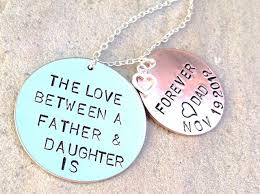
29 Aug Summer Sunday: The Difference Between If and When
Every time I call my Dad, my stomach clenches and I brace myself. “It’s Debbie,” I say. Sometimes I say it twice. Because I’m never sure if he’s going to recognize my voice, and someday I know he’s not going to recognize my name.
“It’s Debbie. Your daughter.”
Alzheimer’s is a funny disease. Some days he seems pretty lucid—he remembers trips he’s taken, things from the past. But other days I can read his confusion, even over the phone. “What do you think about that David guy?”
David is my brother. His son.
We’re getting to the hard part of the journey, the mourning part where we slowly lose him. Not suddenly to a car accident or a heart attack, not gradually to the stages of cancer. But piece by piece, memory by memory, until he is almost unrecognizable as the man who is our father. The hardest part is watching him lose us. Looking and sounding bewildered at the people around him.
I think everyone who watches the agonizing decay of Alzheimer’s has the same fear I have: What if this happens to me? But for most of us, it’s “if.” Not “when.” Only now, thanks to genetic testing, it’s possible to turn the “if” into “when.” If your parent has early onset Alzheimer’s disease, like my Dad, you might be carrying a gene that means that you will develop it, too. And you can be tested to see if you have it.
I might have that gene. David and my other two brothers might have that gene.
“Why would you even want to know?” says my husband.
I’m not sure I do want to know. I think about my kids, mostly. I had them late in life. I do the math in my head every night. My Dad is 75 now…he doesn’t drive, he can’t cook for himself, he doesn’t remember that he has grandchildren, and soon he won’t even recognize his own children. When I am 75 my kids will still need me; they’ll be 36 and 34. They might not even have families yet. I didn’t at that age.
My Dad is missing out on a whole generation of life. I can’t text him or email him photos of the kids, because those technologies don’t exist in his world. I can’t begin to imagine what the world will be like in 30 years, or whether I will have the ability to make any sense of it. I’m envious of the people whose parents are on Facebook. Whose parents can “like” and “share” and download, take part in the social evolution and in their lives.
Why would I take the test? I guess if it was “when” at least I could plan, prepare. I’m not sure what I’d do differently. The specter of “if” has already altered me in meaningful ways. I hug my children too much. I tell them stories about myself and my life that I think they might want to know as adults. I tell them in very vivid detail about their own births and earliest years. These are the things I wish I could ask my father. Everything I wish he could remember and recount to me, I try to embed in their memories. I give them unsolicited advice that they might need as teenagers or grownups, bits of wisdom that they can parse and use later. As if this flood of information and love will somehow fill a future void, some cavern of need they might have if I slowly disappear from their lives someday.
If.
Because without a test, there’s still some ambiguity. At some point, we all face our own mortality—nobody lives forever. But knowing for certain how it’s going to play out, and how soon, is too much. I’d rather live my life with the urgency of knowing how precious it is, and trying to maintain the balance between hope and fear. Not knowing when. But only wondering if.



admin
Posted at 21:38h, 29 AugustDeb, What a beautiful post. It is so honest without getting syrup-y. Thank you. My mother died of Alzheimer’s, so I understand something of what you are dealing with.